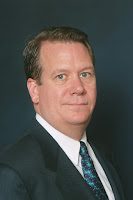Would you make a good franchisee? How to know what skills fit in franchising
 |
But, for those with the entrepreneurial drive who are unsure
how to navigate starting a business, there is an outlet – franchising.
It is often said that franchising allows hopeful entrepreneurs
the opportunity to be in business for
themselves but not by themselves.
Because franchises are developed through the cloning successful business
models, systems and processes, a franchisee is therefore offered a ready-made
blueprint for creating their very own business. Of course, there is more that
goes into operating a viable business than just buying an available franchise;
any business owner, franchise or otherwise, should also have general business
savvy, solid work ethic, and other key characteristics that lend themselves
well to a successful entrepreneurial venture.
But, how does one know if franchising is a good fit, and more
importantly, how does one select the right franchise? Here are some
characteristics that help identify the ideal type of candidate for franchise
ownership:
Franchise owners are
determined
Working hard to achieve personal and professional goals is
motivation for most professionals, but when that professional title shifts to
“owner,” the commitment and determination reaches a new level.
Business owners (franchise or not) learn very quickly that in
order to succeed in business they have to work, and work hard. Success does not
come to those who wait around for it. Some of the most prominent business
owners admit to working 60, 70, sometimes 80-hours a week ensuring their
companies are performing optimally. And even though a prospective franchisee
has the support of the franchise system, that doesn’t eliminate the hours spent
tending to business.
Franchise owners are
system-oriented
One of the biggest differences between an entrepreneur and a
franchisee is the ability (or inability) to follow a system. It is an easy
difference to identify. An entrepreneur is someone with grand ideas, who thinks
their way is the best way, and typically resists authority – not ideal in a
franchise system. A good franchisee candidate, on the other hand, is someone
who understands the business world and can recognize the value of an
established system.
The point of franchising is to create a uniform system across
multiple markets. Having an entrepreneurial-minded owner who insists on doing
things his or her way as part of a franchise network can threaten the integrity
of the entire system.
Franchise owners are
coachable
A successful franchisee must also have an element of coach
ability and a strong willingness to learn. When entering a new business, it is
critical to learn the system, learn the operations and learn to adhere to
challenges. The beauty of working in a franchise system is the ability to learn
from a number of difference sources. Of course, the franchise support team and
executive team are there to help educate, but there is also an entire system of
franchisees to rely on for advice.
When an owner can embrace a willingness to ask for help, the experience
and understanding they can gain sets them up well for future growth and
success.
Franchise owners are
calculated
Finally, determining a person’s qualifications as a franchisee
requires self examination. Certain character traits like risk aversion,
ingenuity and calculated decision making are all desired features of a
high-quality franchisee.
Prospective franchisees know that entering into business
involves some risk no matter what, but what differentiates the successful ones
is an ability to make as few risky decisions as possible. And when those
franchisees take risks, they do so in a very deliberate and carefully
calculated way.
Visit the UCC Partnerships Division >


Comments
Post a Comment